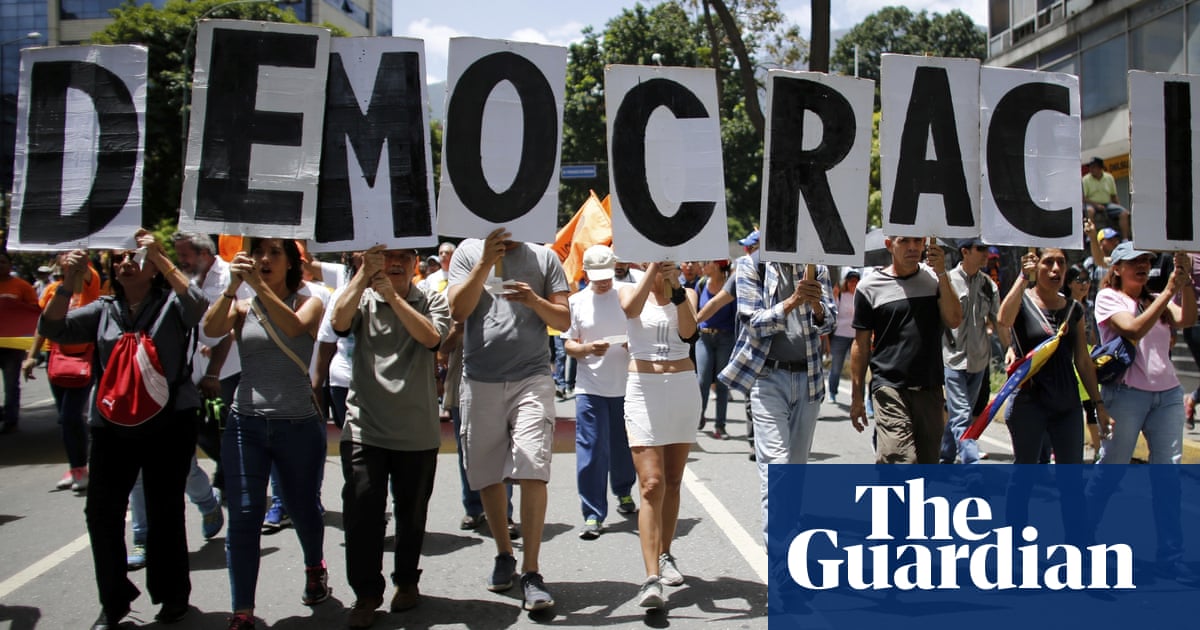The US state department has been advised to terminate grants to nearly all remaining programs awarded under the Bureau of Democracy, Human Rights, and Labor (DRL), which would effectively end the department’s role in funding pro-democracy programming in some of the world’s most hostile totalitarian nations.
The review could affect nearly $1.3bn in grants, three state department officials told the Guardian, citing briefings on the results of a Foreign Assistance Review produced by the Office of Management and Budget (OMB).
Of 391 active grants, only two were not recommended to be cut, the officials said. They concerned one program inChinaand one in Yemen.
The recommendations would “terminate about 80% of all US government foreign assistance at the state department”, said a state department official briefed on the findings of the review.
In a separate incident this week, a new senior adviser to DRL recommended that the bureau’s leadership use funds earmarked by Congress for foreign assistance to cover pet projects for the administration including theresettlement of Afrikaaners to the United Statesand to support the legal defense of theright-wing French politician Marine Le Pen.
According to the state department officials, Samuel Samson, a recent college graduate appointed as senior adviser to the bureau under the new administration, made the recommendations on a DRL white paper being drafted to program hundreds of millions of dollars in congressional funding before they expire later this year.
Samson, one of a number of young conservatives to rise under the Trump administration, reflects the White House’s changing priorities for foreign assistance. He recently wrote a controversial post on the state department’s Substack page titled “The Need for Civilizational Allies in Europe” in which he also criticised the labeling of the far-rightAlternative für Deutschlandparty as an “extremist” organisation, saying that this “environment also restricts Europe’s elections”.
It is not clear whether his recommendations were adopted by DRL’s leadership in the white paper.
Most of DRL programs facing termination are not listed publicly because they support vulnerable individuals or minorities in nations with authoritarian governments that could retaliate against recipients of US aid. But the secretary of state,Marco Rubio– along with staffers from the so-called “department of government efficiency” – named some programs cut in previous reviews of foreign assistance, an act that state department officials have said could put the recipients of that aid at risk.
Some of the programs targeted under the OMB review would include a rapid response team meant to support pro-democracy activists abroad who may require urgent relocation or other protection if their lives are deemed to be in danger.
The programs “provide a lifeline to organizers and civil society doing the work to try to bring democratic values to these countries”, one source said, adding that they referred to places like Cuba andVenezuela.
Other programs focus on internet censorship, media literacy, human rights and atrocity prevention programs, election assistance programs, and efforts to combattransnational repressionby countries such as China.
Termination orders for the grants recommended to be cut by the OMB could be sent imminently, but may be delayed if contested by Rubio. Rubio in the past was a passionate defender of foreign assistance but hashelped cut the bureau’s programmingsince joining the Trump administration.
The sources said that DRL’s leadership and the state department’s office of foreign assistance, informally called “F”, were in “shock” over the results of the OMB review. The fight reflects the divisions within theTrump administrationbetween foreign policy hawks like Rubio who have tailored their views on foreign assistance to the new administration, and hardline conservatives like OMB director Russell Vought who have sought to use the “power of the purse” to rein in and slash government spending.
“It’s a fight between Rubio and Vought,” one person said.
The results of the review were delivered to DRL only after Vought gave testimony before a Senate subcommittee on Wednesday, during which he claimed that the state department grants for foreign assistance remained active.
The results of the OMB foreign assistance review arrived just days before the state department is set to lay off as many as 3,400 employees and eliminate or consolidate about 300 officesunder a major reorganisation ordered by Rubiothat he said would bring the department into line with Donald Trump’s “America First” agenda.
Under the reorganisation, DRL is expected to be gutted. The sources said that eliminating the aid programs could make it easier to process layoffs (called reductions in force, or RIFs) for DRL employees by relieving them of budgets for the programs that they administer.
“If you cut all the programs in DRL, then, then why would you need to keep the staff if they’re not doing any work,” one person said.
It would also make it difficult for the bureau to appeal terminated awards because the employees responsible for that would have been laid off and no longer have access to their state department emails.
Ten Democratic senators earlier this monthcalled on Rubioto preserve the state department’s human rights bureau.
In it, they criticised Rubio for proposing the reorganisation that would shutter most offices in DRL and for abandoning his past support for pro-democracy programming around the world.
“The proposed reorganization would result in a structural and substantive demotion of human rights promotion that runs counter to the spirit of the law and your personal legacy working on these issues,” they wrote.
“As you stated in the subcommittee hearing previously mentioned, ‘millions of people around the world who live in societies dominated by fear and oppression look to the United States of America to champion their cause to fully exercise their God-given rights,’” they wrote. “There are no greater champions more capable of advancing this noble cause than the dedicated staff in DRL.”
